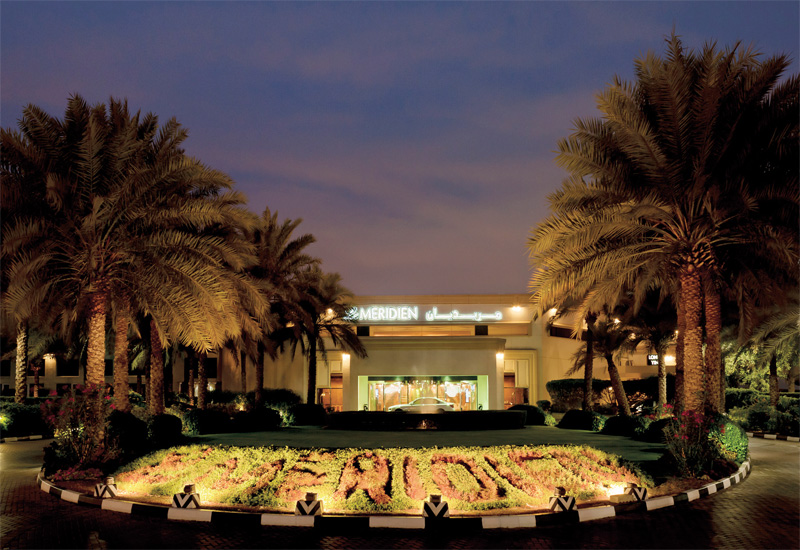Developing a social media presence has become compulsory for all hotels, but whose desk does the task land on and what happens when it all goes wrong?
Consultants and hoteliers say the secret to social media success is good planning by the PR professional, inspired by the team ocial media has gone from being the latest buzz word to an essential tool for hotels, used for communicating with guests and colleagues alike, but an air of uncertainty prevails regarding who should be managing it, when and how to manage it, why it is worth managing and what to do during a social storm.
The who
Edition Hospitality digital marketing consultant Paul Parsons has assisted hotels throughout the region. He is typically approached by confused hotel marketing managers who are under pressure to summon a social media presence.

| Advertisement |
“The impression I usually get, to be honest, is that social media has been dropped on their desk and they’re trying to reduce the amount of time spent on finding content, replying to posts and so on,” he says.
On a positive note, at least the task has been dropped on the right desk. As Parsons explains, only the marketing and public relations departments should be passionate about posting.
“Some people think that traditional laws of marketing and public relations do not apply anymore, but that is wrong. You still have to be able to write proper copy and be able to communicate in an understandable way,” agrees Iconsulthotels consultancy founder Martin Kubler.
You might as well drop social media on its head when your over-passionate and not-too-PR-savvy team members get involved.
Kubler cites the example of the Milanese chef of the new Giannino restaurant at Meydan Beach Club in Dubai, who vented his anger at unimpressed diner and food blogger Samantha Wood using a rather unpalatable choice of language.
Following her blog post complaining of a limited wine list and questioning the authenticity of the Milanese cuisine served at the restaurant, he told her to “contain the orgasm of your ignorance”, before going on to rant about the “ignorance” of all food writers, and finishing with: “All the above is directed also to all ‘professors’ [who] without having a clue of what they are talking about [keep] writing, twitting, Facebooking [sic]. Guys get a life!”
The whole unsavoury episode, which made international headlines, posed a PR nightmare for the restaurant, and quite the opposite for foodiva.net.
This is not to say your passionate team members should be banished from the realms of social media.
While the PR machine is responsible for publishing appropriately-worded, pleasant posts, ideas for content and resources should come “from as far up as the CEO down to the front-of-house executive — all should be involved”, says Parsons.
However, there is one party that should be exiled, the third party. Social media should certainly not be outsourced, even the consultant agrees.
“The problem with a lot of hotels is they will usually outsource it, which is the biggest issue. I advise them that they need to do it in-house, solely because of response times, and they know their brand better than anybody else,” says Parsons.
QUICK CASE STUDY 1:
The Hotel: Le Méridien Dubai
The Leader: Madiha Zakir, online marketing manager
Objective
Social Media is not a fad anymore and it needs to be taken seriously by all hotels. It has changed the way people communicate these days and is very important in terms of online branding and reputation management. Conversations about our hotel brand are happening online whether we like it or not. As a brand, we need to listen and engage with our customers to sustain our loyalty and stay in tune with their requirements.
Strategy
We started the improvement of our social media platforms in February 2011. The process required dedication, taking us approximately two months to streamline our presence on Tripadvisor, Facebook, You Tube, Foursquare and Twitter.
I had to identify the USPs of our hotel, what works best for one brand does not necessarily work for the other.
Le Méridien Dubai’s social channels were primarily positioned as:
• Customer support: From providing special rates for rooms to restaurant bookings or dining experience feedback, our Facebook and Twitter profiles provide real-time customer support to our guests.
• Focus on fewer fans, more engagement: More engagement with fewer, more loyal fans or customers always drives better results.
• Drive incremental revenue: Exclusive ‘fan-only’ offers launched for Le Méridien Dubai’s Facebook fans.
Results
By improving Le Méridien Dubai’s social media presence, we have seen an enhanced perception of our brand in the local and international markets, improved guest loyalty and a substantial return on time invested for our rooms and restaurants.
Article continues on next page ...









 Search our database of more than 2,700 industry companies
Search our database of more than 2,700 industry companies









